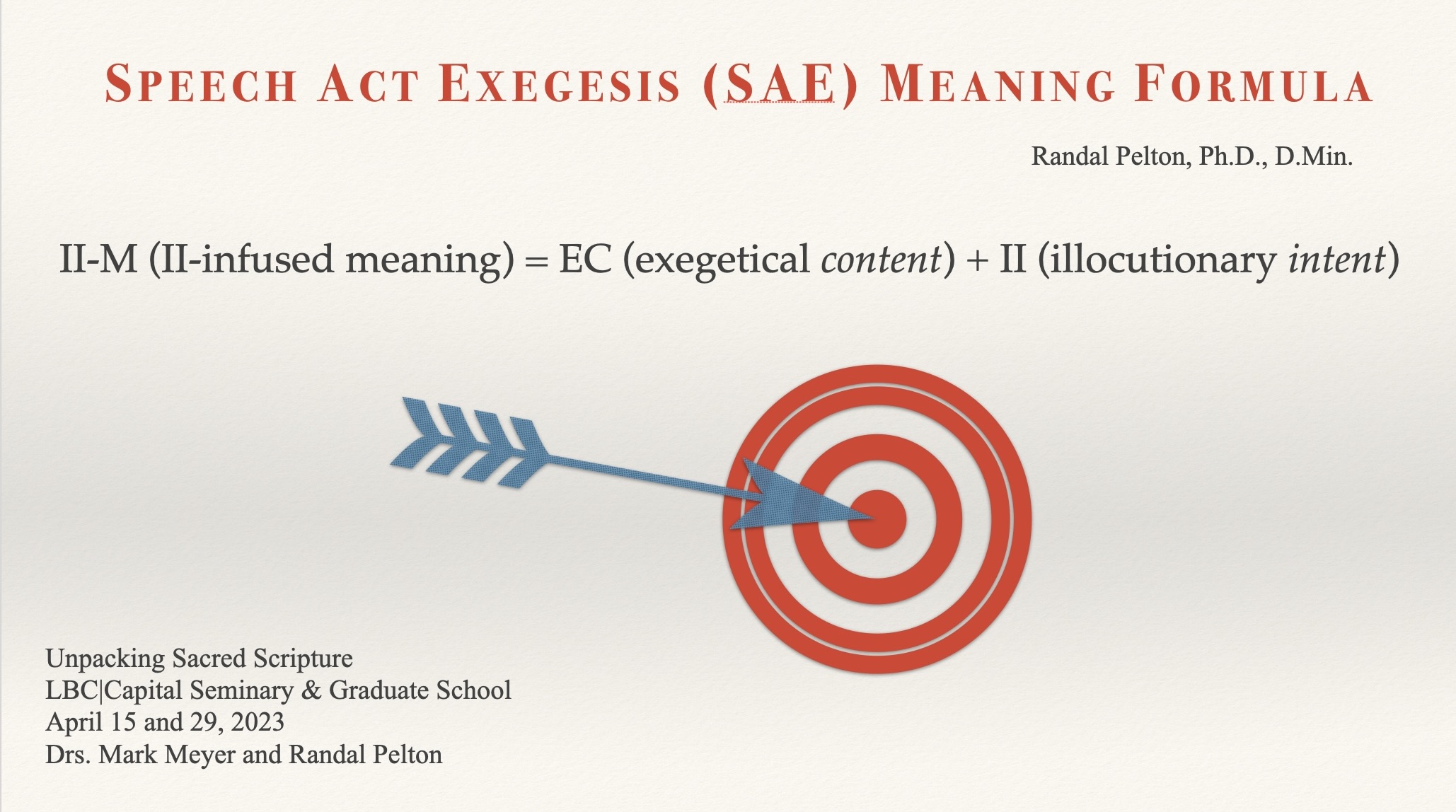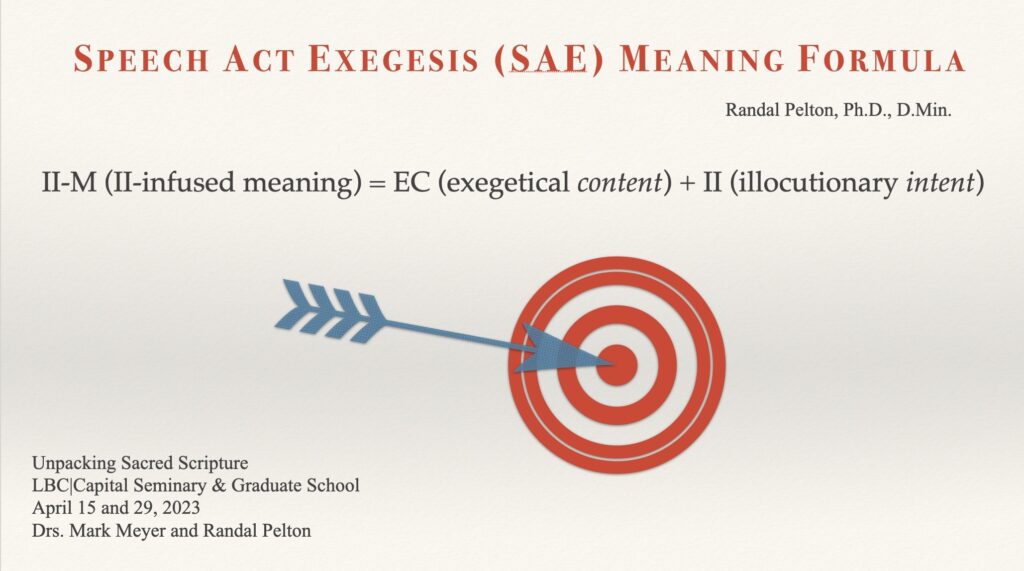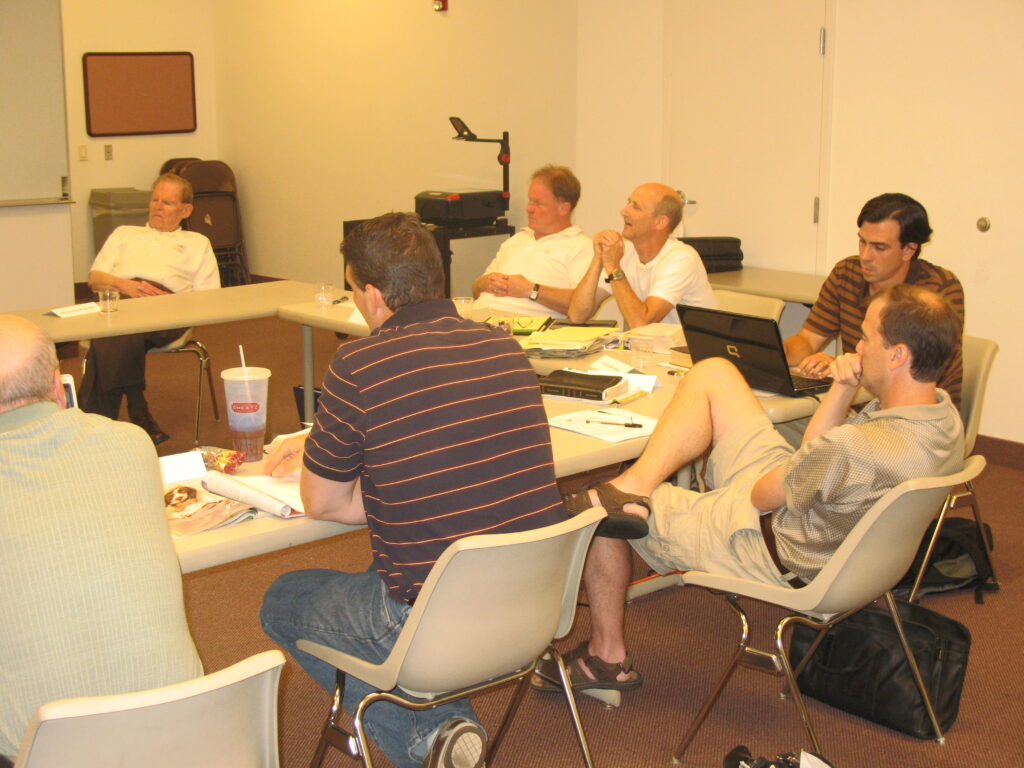Recently, I gained the privilege of teaching a Ph.D. class this fall for Lancaster Bible College | Capital Seminary & Graduate School. The course is BIB 909 Old Testament Hermeneutics and Theology.
One of the many stages of preparing to teach includes selecting major textbooks. One of my choices is Bruce Waltke’s, An Old Testament Theology: an exegetical, canonical, and thematic approach.
[If you plan on preaching from the OT, then this is an excellent resource to have on your shelf. I can’t say enough about the quality of Waltke’s scholarship. Despite being only 100 pages into the book, I am glad I purchased it!]
Near the end of chapter 3, The Method of Biblical Theology (Part 1), section 3 is, “Abstract Themes, Ideas, and Messages.” The last paragraph reads,
“After the exegete has interpreted the text and mined its message, the theologian through critical reflection interprets that message from its old horizon to the new horizons of the canon and then of both to the contemporary church. In other words, the theologian builds his or her interpretation that unites the ancient message with the contemporary world after the exegete has done his or her interpretive work….In this way godly theologians inform the conscience of the church.” (p. 92)
Notice, pastors have a dual role as exegete and theologian for the faith-families they serve.
It is true, then, that interpretation doesn’t end with our exegesis. It extends to our ability to locate the message that functions for the church.
You’ve stopped short of that dual role if you cannot articulate what God intends for your preaching portion to do to the church, to your listeners (“the contemporary world”).
Remember, the meaning of your text for this coming Sunday should combine content (exegesis) + intent (theological interpretation). When meaning combines content and intent, you are functioning in your dual role as exegete and theologian.
And our Lord will continue to receive glory in the church and in Christ Jesus (Ephesians 3:21).
Randal
P.S. Waltke basis this understanding of our roles on the nature of the Bible. He writes, “The Bible is more than concepts about God….It is God’s address to his people and his encounter with them. His ‘ideas’ and ‘principles’ are true and call for a personal response to obey and participate in the truth, the divine reality.” (p. 91).












